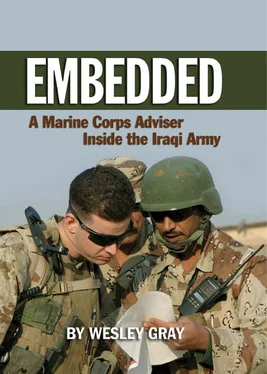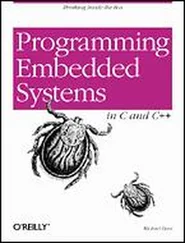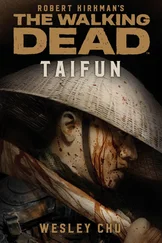Of course not all second lieutenants are created equal. A last-minute addition to the MiTT, 2nd Lt. Marco Le Gette, had an “alarm clock malfunction” before the meeting and managed to show up halfway through my brief. Great, I thought, another sign the MiTT team is not taking the upcoming combat deployment seriously.
I continued despite Le Gette’s interruption. My brief covered a recent attack in our future area of operations near an Iraqi town called Dulab, which is south of the Haditha Triad, the population areas surrounding Haditha, a small town of about forty thousand residents in Al Anbar Province (see map 1 Map 1. The Haditha Triad in Al Anbar Province. All my infantry officer schooling, Marine Corps leadership training, and Officer Candidate School hazing should have taught me how to think on my feet. I was supposed to make decisions in the face of intense combat, yet I couldn’t figure out how to keep these young girls at bay. Although I knew that the area in which we would serve had become the most dangerous in Iraq, I decided that a little white lie was my only option. “Girls, don’t worry,” I said. “I’ve researched the region we’re visiting in Iraq. There are a lot of bad guys in the place, but they have—for the most part—been killed by the Marines. I wouldn’t worry about your father. He will be safe in Iraq.” Adams and I saw his family members’ visible relief as I spoke my words of encouragement. I continued, “Don’t worry about your father; neither the insurgents nor the Iraqi soldiers we will be working with will hurt him. I promise.” Sam and the rest of Adams’s daughters surrounded him, with tears forming in their eyes. They cried, “Thank God, Daddy! We know you’ll be safe over there. Call us every single day!” Adams’s wife, Virginia, was not reassured. As a Marine Corps wife for over sixteen years, she knew the realities of war better than anyone. Virginia whispered into Adams’s ear, “I love you, honey. Be safe.” On the short ride back to the MiTT office, I said to Lieutenant Adams, “God, I was full of shit, man.” Adams smirked. “Yeah, well, all intel officers are full of shit. But seriously dude, thanks for keeping my family calm. The last thing they need to worry about is me coming home in a casket.”
). Insurgents had conducted a coordinated attack on a Marine combat outpost. During the assault a truck approached the checkpoint from the north and fired rocket-propelled grenades (RPGs). Immediately from the south, another group of insurgents pulled up with guns blazing, sending a hail of 7.62-mm lead toward the Marines. The Marines were able to regroup and pour massive firepower onto the two enemy positions. In the end, the game was settled: Marines with eight kills, insurgents with zero.
Remarkably, two of the insurgents killed in the attack were rogue Iraqi police (IP) from Hit, a small town along the Euphrates approximately thirty minutes from the scene of the attack. It did not take a genius to realize that these two insurgents could have easily been Iraqi army (IA) soldiers, the same soldiers we would live with for the duration of our tour in Iraq. By the end of my brief I had the group’s attention. The team understood that our forthcoming duties as embedded military advisers would be unlike any experience any of us had gone through, even for the saltiest among us.
After my intelligence brief I rushed to finish packing. The Marine Corps likes to give Marines lists—many lists. In certain contexts (cooking is a good example), lists are great; in others they are a major pain in the ass. For our situation it was a pain in the ass. Major Pyle (a pseudonym) had us pack every item on the four-page predeployment gear list.
The supply officer for our MiTT, 1st Lt. Rob Adams, and I were not about to drag all the trash on our gear list halfway around the world (e.g., keep our normal sleeping bag and stash our bag rated for minus forty below zero). Immediately after our gear inspection Adams and I drove to his on-base home to dump a large chunk of the gear we were certainly not going to need. As Adams and I were loading our extra gear into his garage, his entire family—three young girls, a baby boy, and his beautiful wife—came out to greet us. Adams’s youngest daughter rushed up to her father and said, “Daddy, Daddy, how was work? What did you do?” Adams responded, “Oh honey, not much. Lieutenant Gray gave us an intel [intelligence] brief on what we will see in Iraq—nothing exciting, really.”
Adams’s daughter looked at me with suspicious eyes. “Lieutenant Gray,” she said, “what’s it like over there? Is my Daddy going to be safe?” Sam, Adams’s oldest daughter, chimed in. “Is my dad going to die? Are you guys going to get shot? Will I ever see my dad again?” I felt as if I was in the middle of a firefight.
Map 1. The Haditha Triad in Al Anbar Province.
All my infantry officer schooling, Marine Corps leadership training, and Officer Candidate School hazing should have taught me how to think on my feet. I was supposed to make decisions in the face of intense combat, yet I couldn’t figure out how to keep these young girls at bay. Although I knew that the area in which we would serve had become the most dangerous in Iraq, I decided that a little white lie was my only option.
“Girls, don’t worry,” I said. “I’ve researched the region we’re visiting in Iraq. There are a lot of bad guys in the place, but they have—for the most part—been killed by the Marines. I wouldn’t worry about your father. He will be safe in Iraq.” Adams and I saw his family members’ visible relief as I spoke my words of encouragement. I continued, “Don’t worry about your father; neither the insurgents nor the Iraqi soldiers we will be working with will hurt him. I promise.” Sam and the rest of Adams’s daughters surrounded him, with tears forming in their eyes. They cried, “Thank God, Daddy! We know you’ll be safe over there. Call us every single day!” Adams’s wife, Virginia, was not reassured. As a Marine Corps wife for over sixteen years, she knew the realities of war better than anyone. Virginia whispered into Adams’s ear, “I love you, honey. Be safe.”
On the short ride back to the MiTT office, I said to Lieutenant Adams, “God, I was full of shit, man.” Adams smirked. “Yeah, well, all intel officers are full of shit. But seriously dude, thanks for keeping my family calm. The last thing they need to worry about is me coming home in a casket.”
We flew from Honolulu to Los Angeles to Frankfurt and finally to Kuwait International Airport. The first two flights were cramped. Perhaps Lufthansa and United Airlines enjoy giving Marines non aisle, nonwindow seats. That makes sense, right? Let’s put Marines in the scrunched middles seats and let the anorexic-looking teenage girls relax in the aisle.
In the end we got our justice on the flight from Frankfurt to Kuwait when a few of us were bumped to first class. Hot dog! As I sat in first class, enjoying the in-flight wireless Internet, drinking wine, and being fed by attractive flight attendants, the ridiculousness of the situation struck home. I was on my way to a combat zone.
We landed in Kuwait International Airport about 2230 and felt the culture shock immediately. Kuwaiti soldiers were returning from a tour of duty along the Kuwaiti border and the entire airport was celebrating. Women were making an awful yodeling sound that was a mix between a coyote’s cry and a cockatoo recently slapped in the head. Meanwhile, the men, in full traditional Arab dress, were dancing and hollering for their heroes. The airport was filled with excitement. This was a hero’s welcome done Kuwaiti style. This was a hero’s welcome we wanted to see in seven months.
Читать дальше












